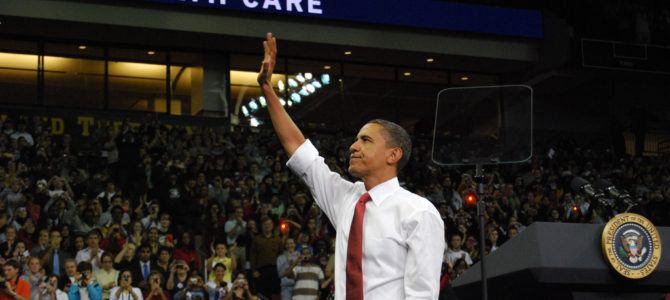
Numerous anti-Trump conservative commentators, from columnist George Will to strategist Rick Wilson to author Tom Nichols, have recently advised Republicans to vote for the Democrats in the midterm elections, in a coordinated effort to punish Republican legislators for not properly utilizing checks and balances on the president.
As an anti-Trump conservative myself, I respect the view that sometimes it can be the best choice for Republicans to vote Democrat; for example, I thought Hillary Clinton was the lesser of two evils during the 2016 election. However, the insurgent left wing of the Democratic Party makes it hard to argue against voting for Republicans in the midterms.
Trump-skeptical conservatives have to balance two concerns while at the ballot box: policy preferences over the short term, and damage to conservative ideas over the long term. What the Democrats do matters in this equation: The further left the Democratic Party moves, the larger the short-term consequences of not voting for Republicans. In 2016, I and many others thought that the short-term consequences of a Clinton presidency were smaller than the long-term harm to conservative ideas a Trump presidency would bring. However, the current Democratic Party poses a far greater threat to conservative policy preferences than Hillary Clinton did in 2016.
The former secretary of state was not an existential threat policy-wise, despite what many Republicans thought. Clinton’s judicial picks would have been terrible, but her policy preferences did not push mainstream political opinion leftward. Her proposals for new spending programs were paired with equal-sized revenue increases, hence avoiding increasing the national debt. In private Wall Street speeches, Clinton made it clear she intended to govern as a centrist.
For example, she supported Simpson-Bowles, a deficit reduction package that reduced spending by 2.5 dollars for every dollar of increased revenue. When facing a GOP-controlled Congress, in which the GOP was still the party of Paul Ryan, such a compromise becoming law wouldn’t have been out of the question.
The current Democratic Party has abandoned Clintonite fiscal centrism. Almost every Democrat jostling for a leadership position has moved further to the left to attract the support of the Bernie Sanders wing. Sen. Cory Booker, once seen by progressives as “a Manchurian candidate for the right” for (among other things) his support for school choice and his defense of private equity and Wall Street, now courts the party’s leftmost wing. He has endorsed a federal jobs guarantee and Medicare for All, while backing off his support for Israel, and posing with anti-Israel activists.
Sen. Kirsten Gillibrand, another rising Democratic star, has moved from a centrist, pro-business Democrat and immigration hawk to a supporter of progressive causes. These two leading candidates for 2020 are just two examples of the leftward swing of the Democratic Party.
This criticism of the Democrats does not mean the Republican Congress has been particularly good. While the Tax Cuts and Jobs Act (TCJA) contained some excellent reforms, such as reducing the corporate tax rate to 21 percent, the combination of tax cuts and new spending has increased the deficit by 20 percent. Meanwhile, the shift toward immigration restrictionism from both the White House and Congress is both immoral and economically illiterate. Furthermore, a trade war is economic foolishness of the highest order, and Congress’s unwillingness to reclaim authority over tariff policy has been a sore misstep. The GOP Congress’s performance has been mixed, to say the least.
However, the Democrats aren’t providing better alternatives. Their main criticism of the TCJA has not been deficit-related, but that the reduction in the corporate tax rate (the TCJA’s best policy change) made the act a “tax scam.” This position lies in contrast to Democrats only a few years ago, when President Obama suggested reducing the corporate tax rate to 28 percent, or when Democratic Senator Ben Cardin’s tax plan featured a corporate tax rate of 17 percent. They recognized that high corporate taxes have a significant, negative impact on economic growth and encourage corporations to report their profits in other countries. Not anymore.
Additionally, it’s hard to take seriously Democratic concerns about the deficit thanks to the TCJA when the most popular new policy idea on the Democratic side is Medicare for All. Medicare for All’s $32 trillion price tag would expand the deficit between 16 and 64 times as much as the TCJA did, and there is no plausible path to finance that kind of expansive spending.
Thanks to the Democrats’ embrace of the progressive wing, the cost of teaching the GOP a lesson in the demerits of populism and Donald Trump has risen dramatically since 2016. That’s not to say that Trump-critical conservatives should necessarily vote for every single Republican: It’s imperative that conservatives vote against Republican candidates who sympathize with Vladimir Putin, neo-confederacy, or white supremacy.
There’s also an argument that conservatives should support moderate Democrats when they are running against subpar GOP candidates. But the Democratic Party’s leftward shift makes the anti-Trump argument for “throwing the GOP bums out” across the board untenable from a conservative perspective.









